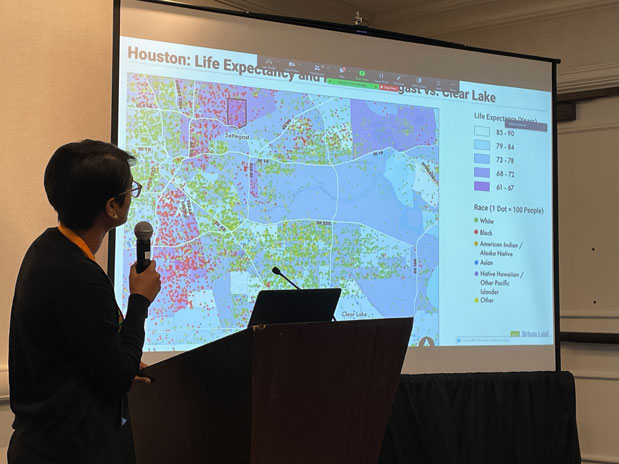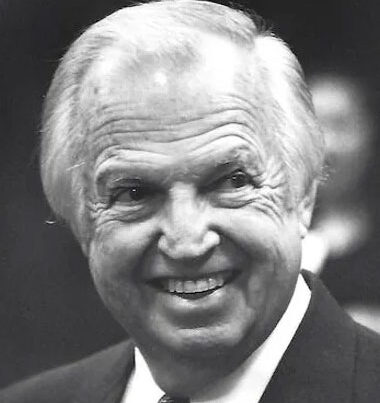
As part of a gathering of ULI’s District Council Partnerships for Health Equity in San Diego, life expectancy disparities in Houston and other cities were discussed.
Five ULI District Councils—three in the U.S. and two in Canada—gathered during ULI’s Spring Meeting in San Diego. The councils exchanged ideas as it embarks on the subsequent phases of its award grant.
Over the next 18 months, these five ULI District Councils, which make up ULI’s District Council Partnerships for Health Equity (PHE) group, will seek to further understand and acknowledge historical inequities and racial discrimination within the land use industry.
Finally, District Councils will use this work to create compelling action agendas for advancing antiracism and health equity in real estate. Action plans will emphasize tangible steps for real estate, in addition to broader policy recommendations.
The program is operated by ULI’s Building Healthy Places Initiative and is made possible through the financial support of the Robert Wood Johnson Foundation.
“We are bringing to life the complicated and often untold stories related to race and real estate through highly visual maps and compelling data. We hope ULI members will use the information to acknowledge past wrongs and recognize the legacy of these actions. When ULI members have their a ha moment – or epiphany when they just get it – and commit to action, then we know we have done our job right,” said William Herbig, a senior director with ULI’s Building Healthy Places Initiative.
While the five District Councils are collectively focused on exploring inequities and racial discrimination, each is focused on a land use or real estate challenge unique to their local communities:
- ULI British Columbia: Breaking down housing barriers with indigenous communities
- ULI Houston: Fostering an equitable vision with Settegast
- ULI Northwest: Advancing healthy, community-centric growth
- ULI St. Louis: Amplifying the physical and mental aspects of housing quality
- ULI Toronto: Tracking historical displacement of Black communities

Breakout discussions during the ULI’s District Council Partnerships for Health Equity meeting in San Diego.
Following up ULI’s Fall Meeting in Chicago, where participants launched their work and were grounded in the foundations of health and social equity led by project advisors Charles Brown and Tiffany Young, the San Diego gathering in April explored the power of mapping, data, and visualizations in telling impactful stories. The workshop was led by the data and mapping advisors, Beth Tucker and Sindu Sivayogam with Kimley-Horn Associates.
Tiffany Young, a project social equity working with Equitable Cities, a U.S.-based urban planning, public policy, and research firm, said, “There is value in assembling teams from across north America at one time, both in-person and virtually, to share ideas, successes, and challenges. The San Diego gathering provided space for teams to take their projects to a new level because of the collective sharing that took place.
There was strong consensus about the importance of mapping and data as a tool to set the context to drive a story. For example, one of the teams felt that storytelling is essential to improving health outcomes. Still, they also raised challenges in measuring complex health issues such as trauma and how to embed complex data into their project story.
All the teams felt that they needed to emphasize more qualitative information, such as personal anecdotes, interviews, and quotes, to support the quantitative data they had collected for their projects. As the target audience is the real estate community, most teams aim to create innovative approaches in their storytelling.
A PHE participant closed the discussion and meeting with a quote from our Randall Lewis/ULI Building Healthy Places Forum keynote speaker, Majora Carter, “Community is not a place, it’s an action.”
“I found that the gathering helped teams recognize blind spots and ultimately led to the repositioning of the five projects for the better. I left feeling inspired by the level of cross-team collaboration and look forward to continuing the conversation,” said Sindu Sivayogam, who was part of the team at Kimley-Horn Associates providing data and visualization support to the project.
Charles T. Brown, a project social equity advisor and founder and principal of Equitable Cities, said, “Our time together in San Diego reconnected us, reenergized us, and reminded us of our collective goal to center racial equity in the real estate industry. It is a challenge we accept.”
The group will continue to engage in bi-monthly online forums and meet again for the next hybrid cohort gathering at the Fall Meeting in Dallas. The gathering will focus on developing action agendas for change in real estate and the elements of behavioral change required to achieve industry adoption to overturn past wrongs.
+++
The work of ULI British Columbia, ULI Houston, ULI Northwest, ULI St. Louis, and ULI Toronto is building awareness of racial injustice in real estate and land use among members and seeking to identify opportunities to engage the real estate industry to enhance community health and reduce wealth disparities. Beyond any specific project deliverable or published report, the legacy of this work may be the meaningful and trusted relationships forged amongst ULI members and partners, and the industry shifts that follow. Learn more about the project at www.uli.org/partnerships.


